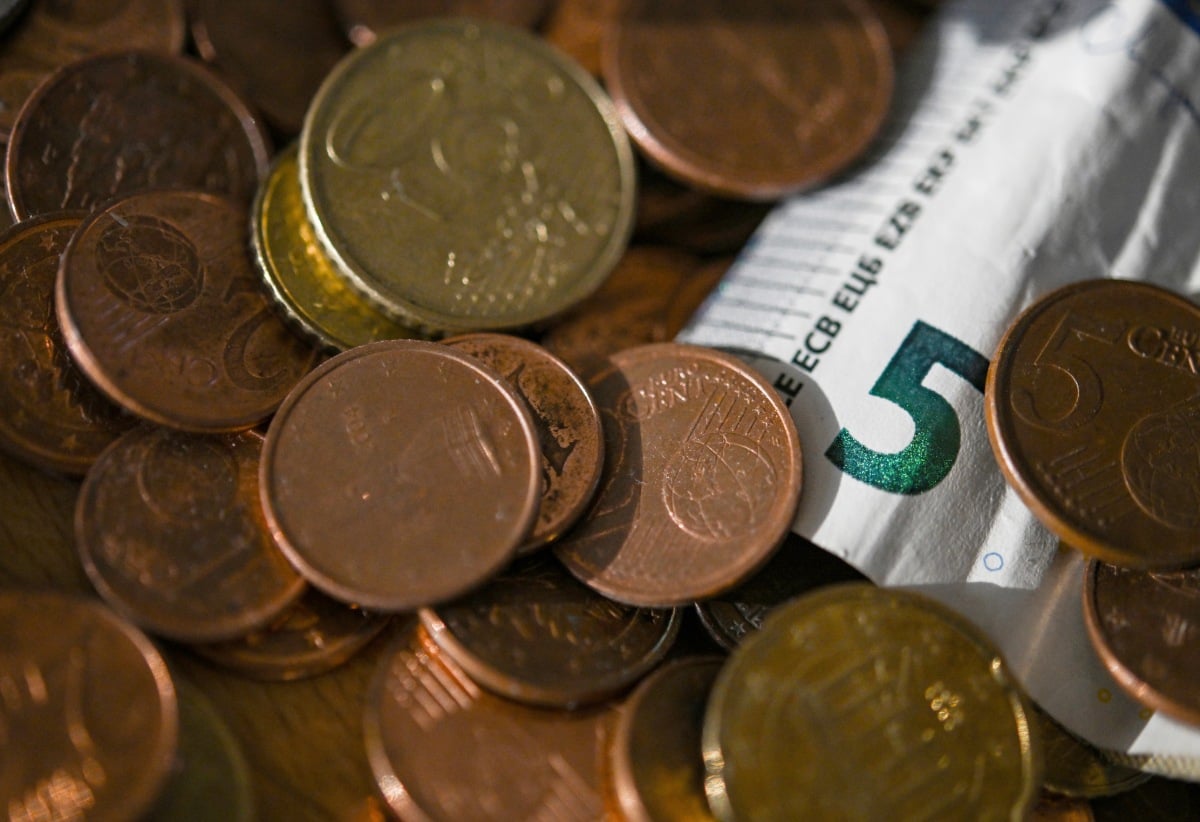At age 71, the divorced mother of four says she barely scrapes by in her small flat in the northern port city of Kiel. She considers going out for a coffee a rare luxury and can't afford to visit her grandchildren.
Krause, who has joined an anti-poverty campaign group, said she finds it hard to endure the "disdain" voiced by Germany's political class towards those struggling to make ends meet amid surging food prices, power bills and rents.
She is most galled by the centre-right CDU, the frontrunner in Sunday's poll, a party which she said views poverty as simply a "personal fate" that should not be dealt with by the government.
Krause is among more than 13 million people in Germany - around one in seven in the world's third biggest economy - classed as living below the poverty line.
If those on the margins and deemed at risk of falling into poverty are included, the number climbs to more than 17 million in the official statistics.
Worst-hit are single mothers, the long-term unemployed and, increasingly, retirees, whose number is ballooning in the fast-ageing country, putting further strain on the pension system.
The Council of Europe last year took the German government to task over poverty levels it considered "disproportionate to the wealth of the country".
READ ALSO: How do Germany's political parties plan to fix the economy and boost jobs?
And yet, Krause told AFP, the issue has been "largely ignored" by major parties in a campaign dominated by the hot-button topics of immigration and public security.
Plunge into poverty
Krause said she long worked in a book shop and started her own textile store in the 1980s.
"With my own income, I paid my own way, and ensured a good education for my children," she said.
After getting divorced in 2001, she had to raise her fourth child alone. She later sold her shop and then started selling her products on markets.
She stopped working in 2015, a few years before the official retirement age of 67, after being diagnosed with a tumour in one eye that affects her vision.
Although she was long self-employed, as a married woman she never set up a private pension plan, now leaving her to face old age with few means.
Her state pension and welfare payments together make up €1,066 ($1,117) a month - more than €300 below the official poverty line.

After paying for rent and heating, she has just €678 a month to live on.
The small comforts she has in her life - a television, household appliances - were purchased before she fell on harder times.
For Krause, poverty means isolation. With her family scattered across Germany, she can't afford to visit her seven grandchildren.
'Democratic duty'
In the campaign, a fierce debate has flared on Germany's "citizen's allowance," (Bürgergeld) a welfare payment set at €563 for a person living alone, usually for the long-term unemployed or low income earners.
It is claimed by about 5.5 million people.
READ ALSO: Citizenship to Bürgergeld - the laws the CDU wants to scrap if they win power
The far-right and anti-immigration AfD party has seized on the fact that 60 percent of claimants are of foreign origin - including many Ukrainian war refugees.
CDU leader Friedrich Merz, tipped to become the next chancellor, has threatened to pull the benefit from those deemed fit to work.
"Those who don't work even though they could will no longer receive the citizen's allowance in the future ... Then we say: zero," Merz said in a TV debate Monday - an approach viewed by some as stigmatising the jobless.
"You don't fight poverty by fighting the poor," said Michael David, who works on poverty alleviation at the Protestant charity Diakonie.
Instead, he called for long-term support and training to encourage people to rejoin the labour market.
Like Krause, a growing number of pensioners are at risk of falling into poverty -- a recent study by the Pestel Institute estimated their number will rise to 2.8 million over the next decade.
Krause, despite her difficult circumstances, is determined to keep speaking out about the plight of the poor through her work with the Anti-Poverty Conference, an alliance of NGOs.
While many poor people feel discouraged from voting, Krause said she intends to do her "democratic duty", arguing that "those who do not vote have resigned themselves" to their fate.

Comments